Traci Zeller Interview Spring Home Decor
Mar 20, 2020 | Carpet One Floor & Home
From the spring issue of Beautiful Design Made Simple magazine, award-winning designer Traci Zeller answers all of your need-to-know questions on seasonal home decor and beyond.
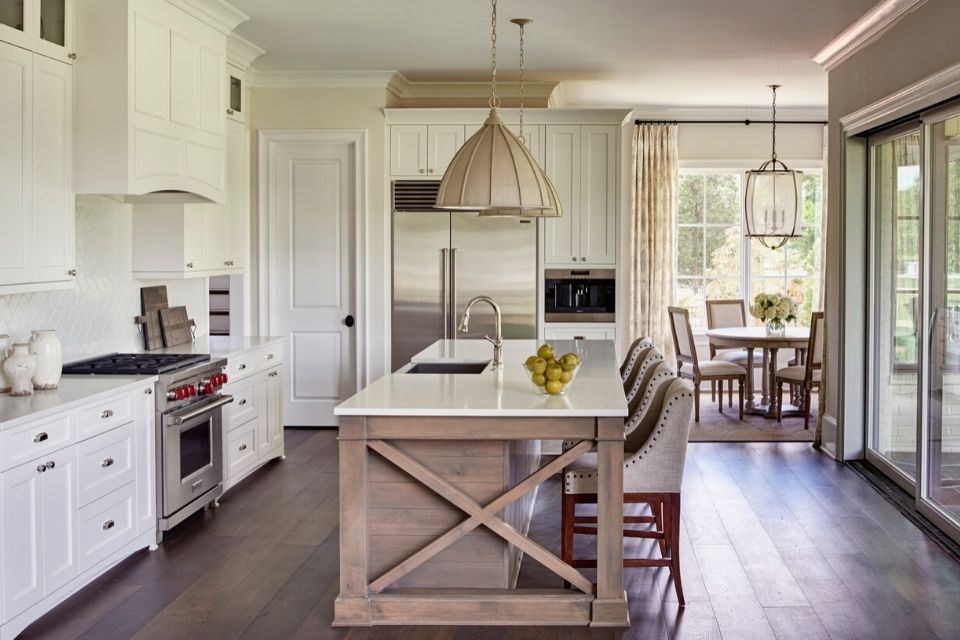
Q: Nothing transforms a space quite like a fresh coat of paint. What is your go-to color(s) for creating a refreshed look and feel within a room?
I can’t say that I have go-to paint colors simply because choosing the right paint color is specific to each space based on fixed elements of the room (such as countertops in a kitchen or bathroom), the light that the room receives, and the fabrics and furnishings going into the space. For a fresh neutral that goes with just about everything, however, I love a pale greige like Benjamin Moore Classic Gray and Sherwin-Williams Shoji White.
Although they aren’t quite as versatile as a neutral choice would be, I am totally in love with Sherwin- Williams Naval, Benjamin Moore Glass Slipper, and Benjamin Moore Guacamole. I’ve used each of these colors on either cabinetry or trim, and it’s such a fabulous look!
Q: As a designer, do you incorporate seasonal hues into your home? If so, what are the best ways?
It’s probably more accurate to say that I incorporate seasonal textures into my home, but all within the context of the existing color scheme. For example, I love to drape a sumptuous cashmere or wool throw over the arm of my sofa the moment the first frost hits. For spring, I’ll swap out my gray mohair pillows for pale-pink linen.
I also rarely use “traditional” colors in my holiday décor. Last year, I used various shades of pinks, ranging from blush to a deep berry. One great way to pull your holiday color scheme throughout your home is to buy lots of ribbon in one of your colors and tie it on a front- door wreath, onto the backs of dining room chairs, and around lamp bases. You can also bring one or more of your colors to your holiday table by layering colorful chargers under plain white plates or your regular china.
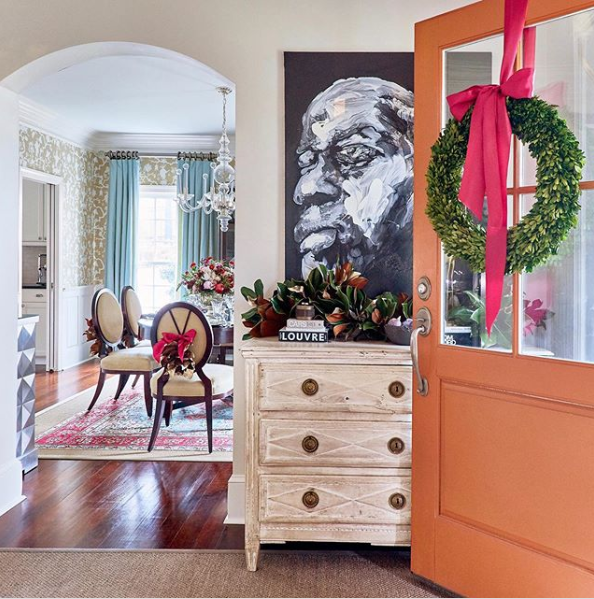
Q: When it comes to rooms that are highly lived in and loved on by all ages, how do you approach the design differently?
The first order of business when creating a space the whole family can enjoy is to balance style with durability by choosing beautiful fabrics that will stand up to the challenge of daily life. Look for performance upholstery fabrics; they’re the Holy Grail for homes with children and pets. Thankfully, over the last few years, manufacturers have come out with a bevy of colors and styles that look and feel amazing, so there are plenty of great options to choose from.
Incorporating areas for different activities into the living room’s layout is a great way to ensure family members of all ages will gather there. A seating area encourages conversation, a chair with a side table and a lamp will invite curling up with a book, and a quartet of chairs surrounding a small table is perfect for enjoying a snack and playing games.
One thing I don’t do any differently in spaces for active families than I would in any other space is to add beautiful artwork, original or otherwise. There’s just something about art on the walls that makes a room feel more personal and complete.
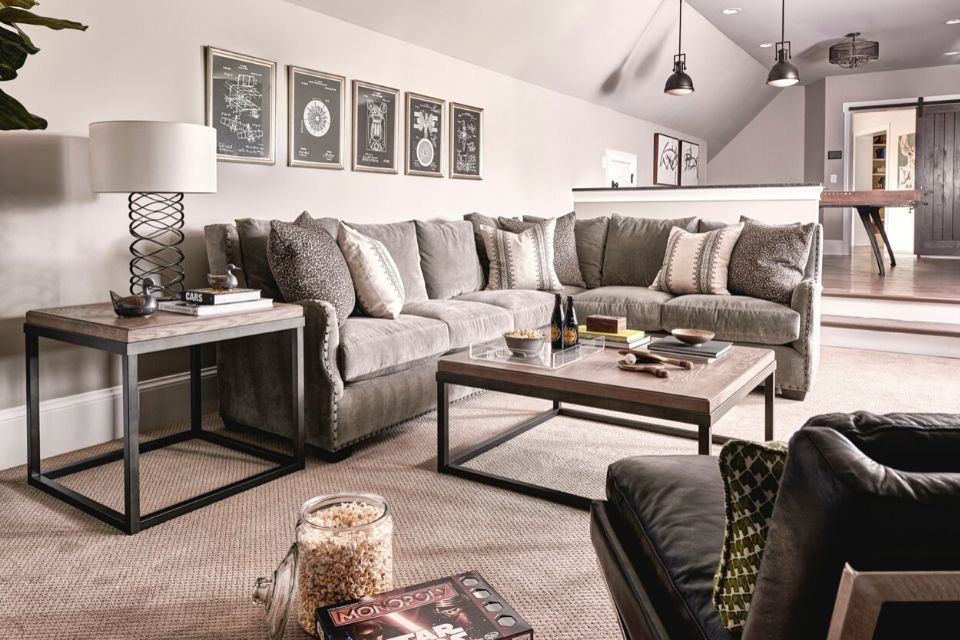
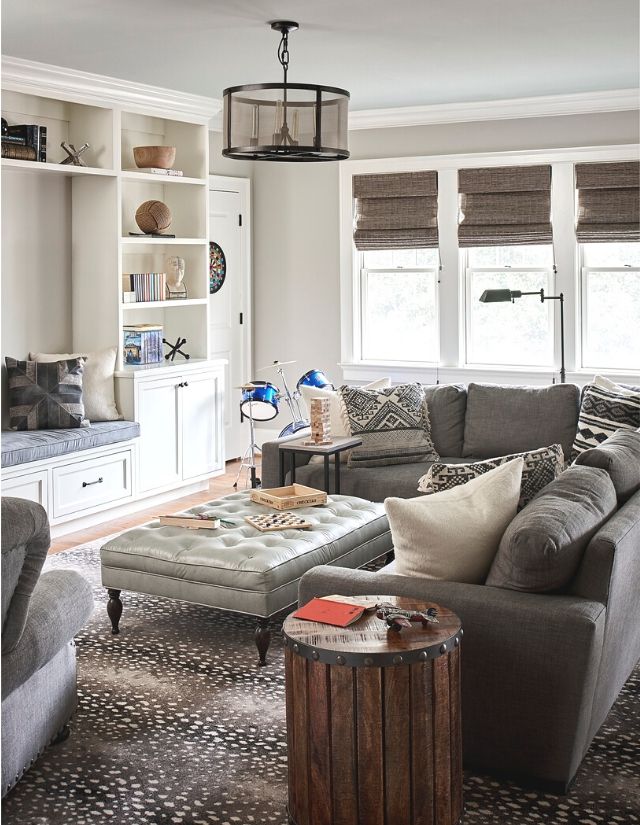
Q: Everything gets a bit lighter as we transition from winter to spring. Fewer layers, lighter fabrics. Do you have any favorite fabrics and textures to introduce in the spring?
A perfect way to lighten up your home for spring involves one of my favorite tricks for cozying up your home in winter. I love to layer wool rugs over seagrass rugs in the cooler months to add a little extra softness and warmth underfoot. Then come spring, remove the wool rugs to unveil the natural texture and cool feel of the seagrass rugs. It’s a simple action that transforms the entire room.
I also love to swap out heavier quilts and accent pillows in cozy fabrics on the beds for ones made from lightweight, cooling fabrics that feel fresh and breezy. There’s nothing better than laying your head on a crisp cotton or linen pillowcase.
Of course, spring in my home always means more fresh flowers than ever (I’ve never met a peony I didn’t like). Put them in every room for a home that looks and smells like a springtime garden.
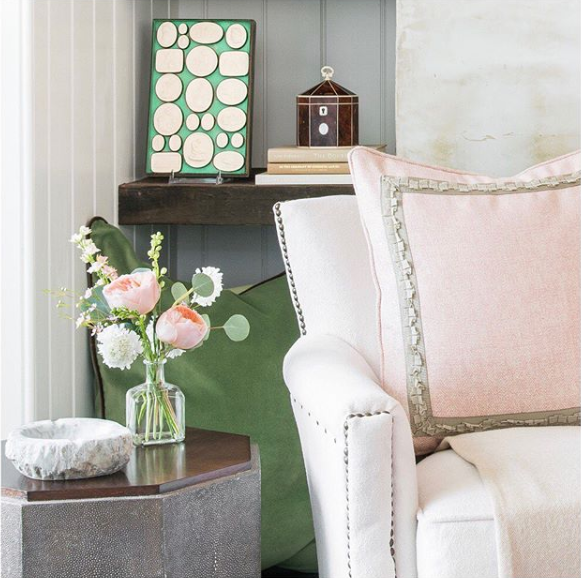
Q: Just as seasonal blooms give life to exterior landscapes, artwork gives life to interiors. What advice can you offer someone looking to do a complete art overhaul in their home?
That sounds like a fun undertaking! While I recommend always keeping an eye out for new pieces you’ll love, I think most art lovers remain sentimental about their favorites. I have certain pieces I know I’ll keep forever.
I’d say the first thing to do would be to take an inventory of any existing pieces you own. Which ones do you still love? Are there any you love but that could use a frame update? That’s a great way to freshen up pieces you aren’t quite ready to part with, but that don’t fully work with the look and feel you’re going for in your space.
Then take an inventory of the wall space you have available. Make careful notes about the height and width of each space. I even recommend snapping a photo so you can quickly recall what’s in that area of the room when you’re shopping. In terms of where to find great art, you might want to start by looking online or at local galleries. If original pieces are what you’re after, follow and search #originalart on Instagram. You’re bound to find artists, if not specific pieces, you’ll love. From there, you can contact the artist directly to commission a piece, or discover which galleries represent them.
If you’re looking for reproductions, there are a lot of good manufacturers, but I particularly love Wendover Art Group’s collections (they sell to the trades only so you’ll need to get in touch with a designer or other dealer to purchase pieces).
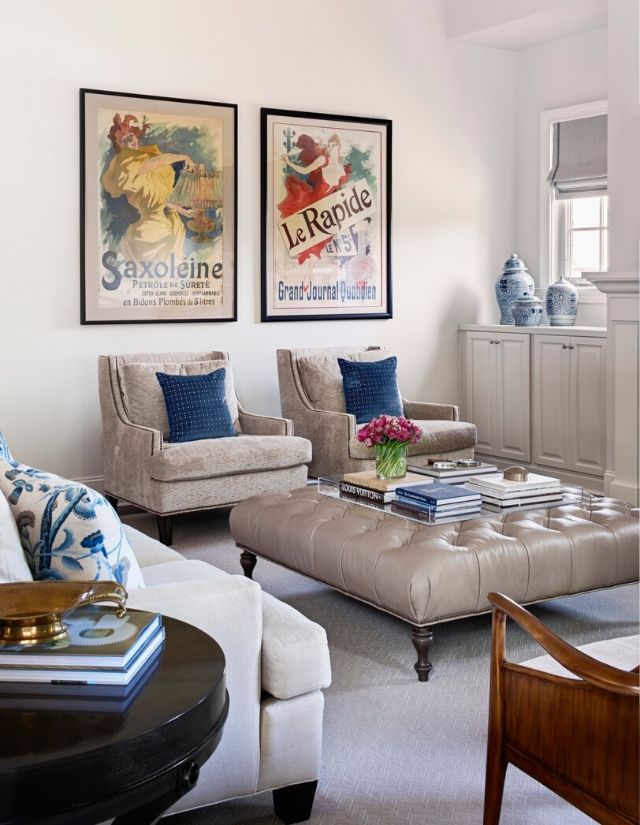
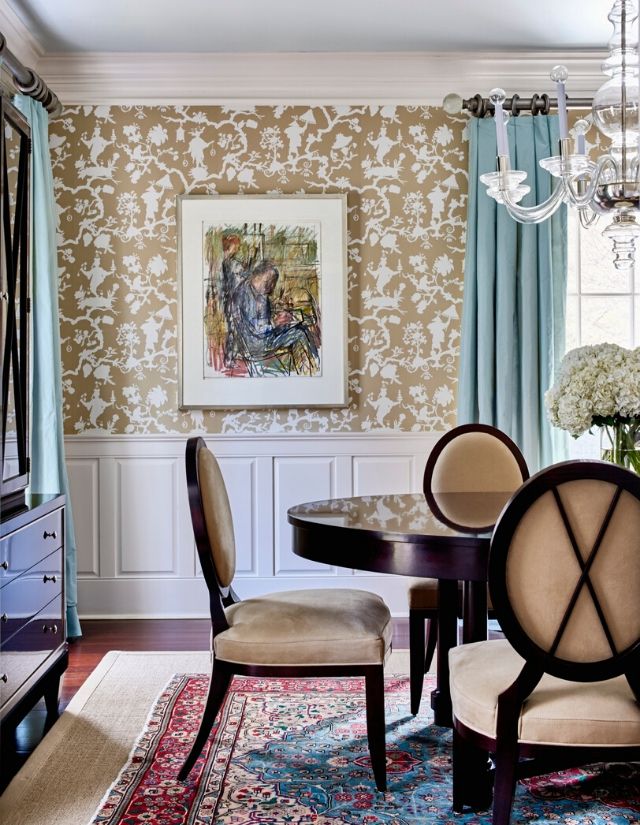
Q: From a functional standpoint, what is the secret to making the most out of built-in bookcases and shelving?
I think there are three keys to using built-ins and other open shelving as functional storage that looks beautiful:
1) Clutter is neither beautiful nor functional. No matter how neatly you try to arrange everything, too much of anything never says “well-designed.”
2) A cohesive color story really matters here. We’ve all seen shelves with books of every color in the rainbow, and it usually looks chaotic. The same is true for dishes. If you have items in a wide array of colors, that can absolutely work. Simply group similar colors together and, if possible, separate the different color groups on different shelves. Or create delineation on the same shelf with separate stacks.
3) For nondecorative items you want close at hand (kids’ art supplies, media remotes, etc.), employ beautiful covered storage boxes and baskets that fit neatly on your shelves.
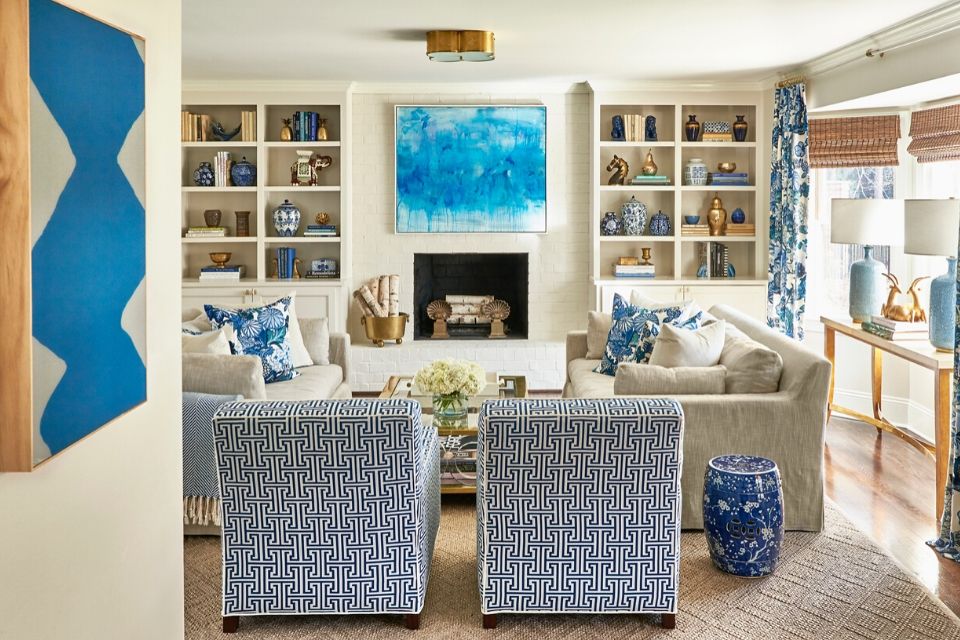
Q: We adore ALL of your kids’ room designs. For a space that’s bound to get messy, how do you combat the chaos through design? Favorite fabrics and textures to introduce in the spring?
First of all, I’m not a minimalist in my design style, but I am with respect to just about everything else, including kids’ toys and clothing. Simply put, the less you have, the less there is to mess up! That said, I do try to incorporate simple, beautiful organizing solutions into my own home and the spaces I design for my clients. For example, covered bins or baskets work great for kiddos to quickly stow toys away at the end of a play session, as well as for collecting loose items like shoes and sports equipment in foyers and mudrooms.
For the more public areas of the house where kids’ messes tend to collect, like living rooms and kitchens, I turn to closed storage, whether in the form of cabinetry and built-ins or beautiful consoles and other storage pieces.
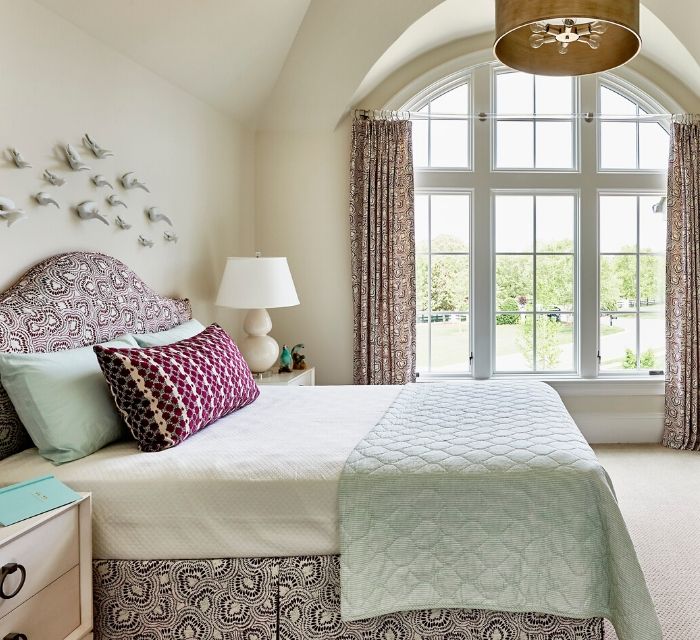
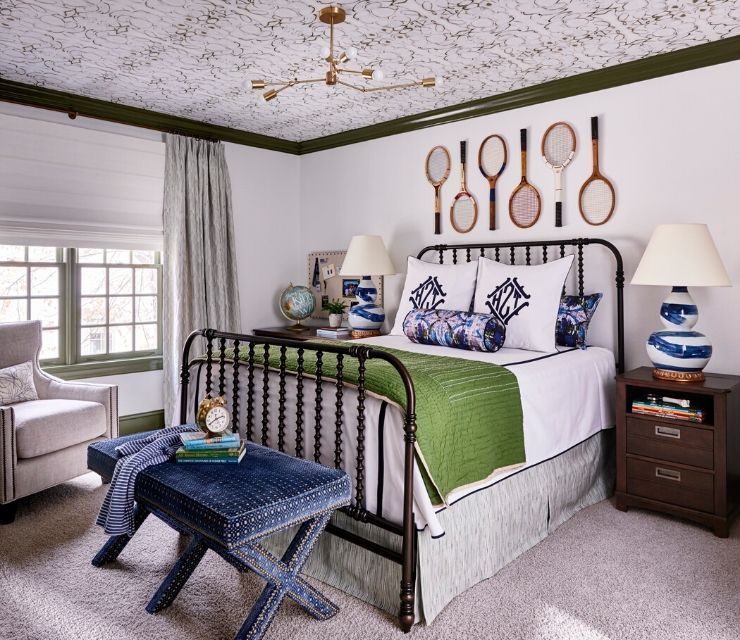
Q: For each of the following rooms, name one must-have design element (or expert tip) to ensure a highly-functional space:
Kitchen:
Great cabinet design is vital. There’s nothing less functional than a kitchen that doesn’t have storage configured to suit what you have and what you use regularly. Small appliances often clutter the countertops simply due to the lack of easy-to-reach storage.
Living Room:
Having sufficient seating to accommodate everyone in your home, and providing each seat with a place to put a drink and a book, makes a world of difference in how you’ll use and enjoy your living room.
Bathroom:
Including a linen closet (or large cabinet) in the bathroom itself is a must. It’s never fun to realize mid- shower that you forgot to grab a towel—and that the linen closet is down the hall! No room for that? Maybe there’s a spot for an extra towel bar or hook!
Office:
Every office needs certain items to be functional, and we traditionally rely on our desk drawers to stow many of those items. But if space is at a premium, opt for a smaller desk with no drawers instead and add a console or credenza with larger cabinets for your closed storage. That way, you can hide away bulky items like the printer and router as well as the little items that would have gone in your drawers, like a stapler, tape dispenser, envelopes, etc.
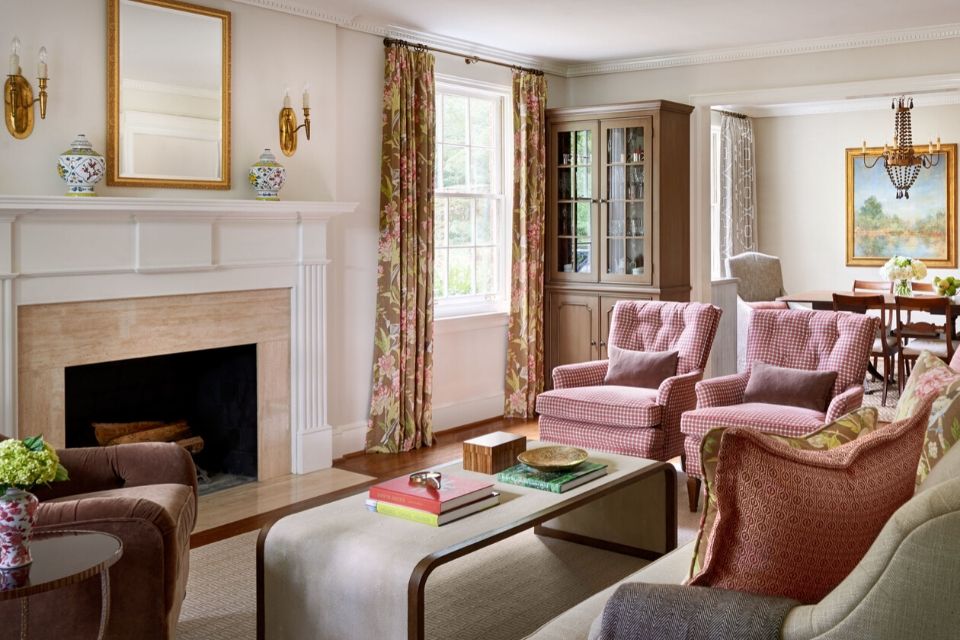
Q: For those not looking to break the bank, what are three inexpensive ways one can refresh their home décor this spring?
1) Fresh flowers.
2) Buy a new book or two in colors that fit with your room’s decor. You can never have enough beautiful books for stacking on coffee tables and shelves!
3) Throw pillows are always a good way to change up the style of your home. Opt for down-filled options in high- quality fabrics. One great trick is to get a slightly larger pillow insert than you need to fit the cover because fuller pillows always look more luxe.
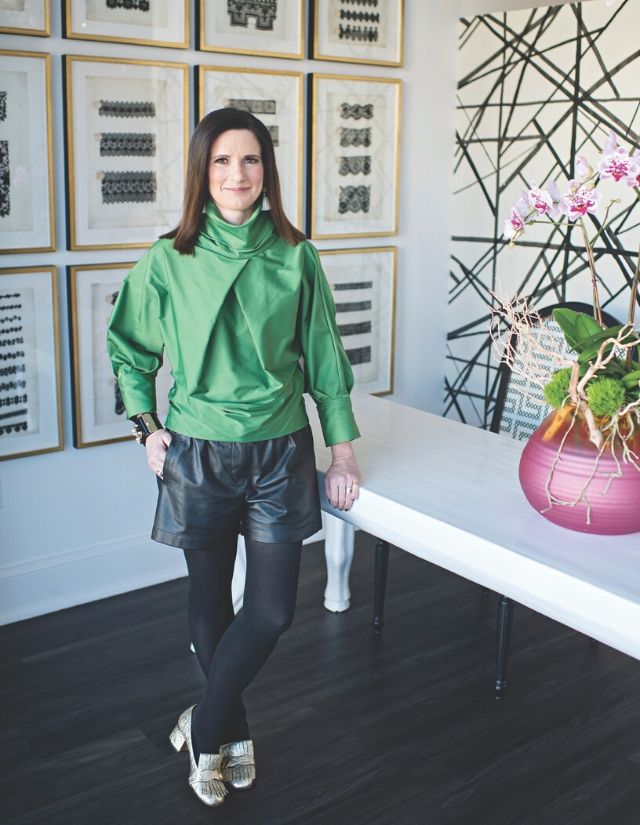
About the Designer:
Crisp lines, classic sensibilities, and chic palettes are the cornerstones of Traci Zeller's aesthetic. Founder and principal of Traci Zeller Interiors, Traci's award-winning work has been featured in national design publications like Better Homes and Gardens and Traditional Home.